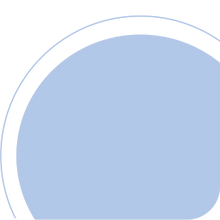Fundus Autofluorescence Imaging


Request an Appointment
Fundus autofluorescence (FAF) is a non-invasive imaging test that shows the health of the retina by capturing natural fluorescence—no dyes or injections needed. It’s a safe, reliable tool for diagnosing and monitoring retinal diseases like age-related macular degeneration (AMD), Stargardt disease, and retinitis pigmentosa. Retina specialists use FAF to detect subtle changes in the retinal pigment epithelium that may not be visible in a standard eye exam. At Retina Associates Of Greater Philadelphia we provide advanced eye care at our 5 convenient locations in Philadelphia, North Wales, King of Prussia, Plymouth Meeting, & Sewell.
Understanding Fundus Autofluorescence (FAF)




Interpreting FAF Images: Normal vs. Abnormal Patterns
FAF images provide a detailed map of the retina by highlighting areas of natural autofluorescence. A normal scan will show a clear, uniform glow with certain expected dark areas where blood vessels and the optic nerve block the fluorescence, and a slightly darker fovea due to its unique pigment concentration. When disease interferes with the normal state of the retina, the FAF image will show telltale signs that our Retina Specialists’ can analyze to determine the health and progression of retinal conditions.
What to Expect During a Fundus Autofluorescence Test
The test is fast, comfortable, and requires no injections.
You’ll sit in front of a camera with your head on a chin rest. In some cases, your pupils may be dilated. A brief flash of light helps capture detailed images of your retina. The process takes just a few seconds per eye and doesn’t cause pain or discomfort.
The procedure itself involves the following steps:




Comparing FAF with Other Imaging Techniques
It’s natural to wonder how FAF stacks up against other imaging methods that are available in retinal care. Unlike fluorescein angiography—which involves the injection of a dye into your bloodstream—FAF is entirely non-invasive. This means there is no waiting period for dye circulation, and there is no risk of side effects from the dye itself.
Patients Who May Need FAF
FAF is beneficial for a number of patients, particularly those who are at risk of, or already experiencing, retinal conditions. If you have been diagnosed with or are suspected of having a retinal disease, FAF imaging can serve as an important tool in your overall retinal care regimen.


Benefits of Fundus
Autofluorescence Imaging
FAF imaging offers several significant advantages when it comes to tracking and managing retinal health. The process is safe, quick, and comfortable, which means it can be repeated regularly to monitor changes over time.
Here’s why many patients benefit from this indispensable diagnostic tool:
Ongoing Monitoring and the Role of FAF in Treatment Decisions
One of the most valuable features of FAF imaging is its ability to monitor retinal changes over time. By using FAF as a regular part of your retinal care, our Retina Specialists’ can keep track of the progression of any retinal disease, ensuring that treatment plans are always based on the most current and detailed information available.
Your Trusted Retina Specialists Serving The Greater Philadelphia Area
At Retina Associates Of Greater Philadelphia, we prioritize your eye health through advanced imaging techniques like fundus autofluorescence (FAF). This non-invasive, quick, and safe procedure allows for early detection and monitoring of various retinal conditions. Our Retina Specialists’ rely on FAF to guide treatment decisions effectively, ensuring each patient receives tailored care. By understanding the intricate details of your retinal health, we can help maintain your vision for the future. Schedule an appointment with our retina specialists in Philadelphia, North Wales, King of Prussia, Plymouth Meeting, & Sewell, NJ.
Request an Appointment
Here’s the thing about retina care, it often requires frequent visits. That’s why we’ve made it a priority to be nearby when you need us most. With offices in King of Prussia, Philadelphia, North Wales, Plymouth Greene, and Sewell, we’re close to where life happens. Patients from Northeast Philly, Cherry Hill, Bensalem Township, Vineland, Norristown, and Lansdale count on us because we’re just a short drive away.
